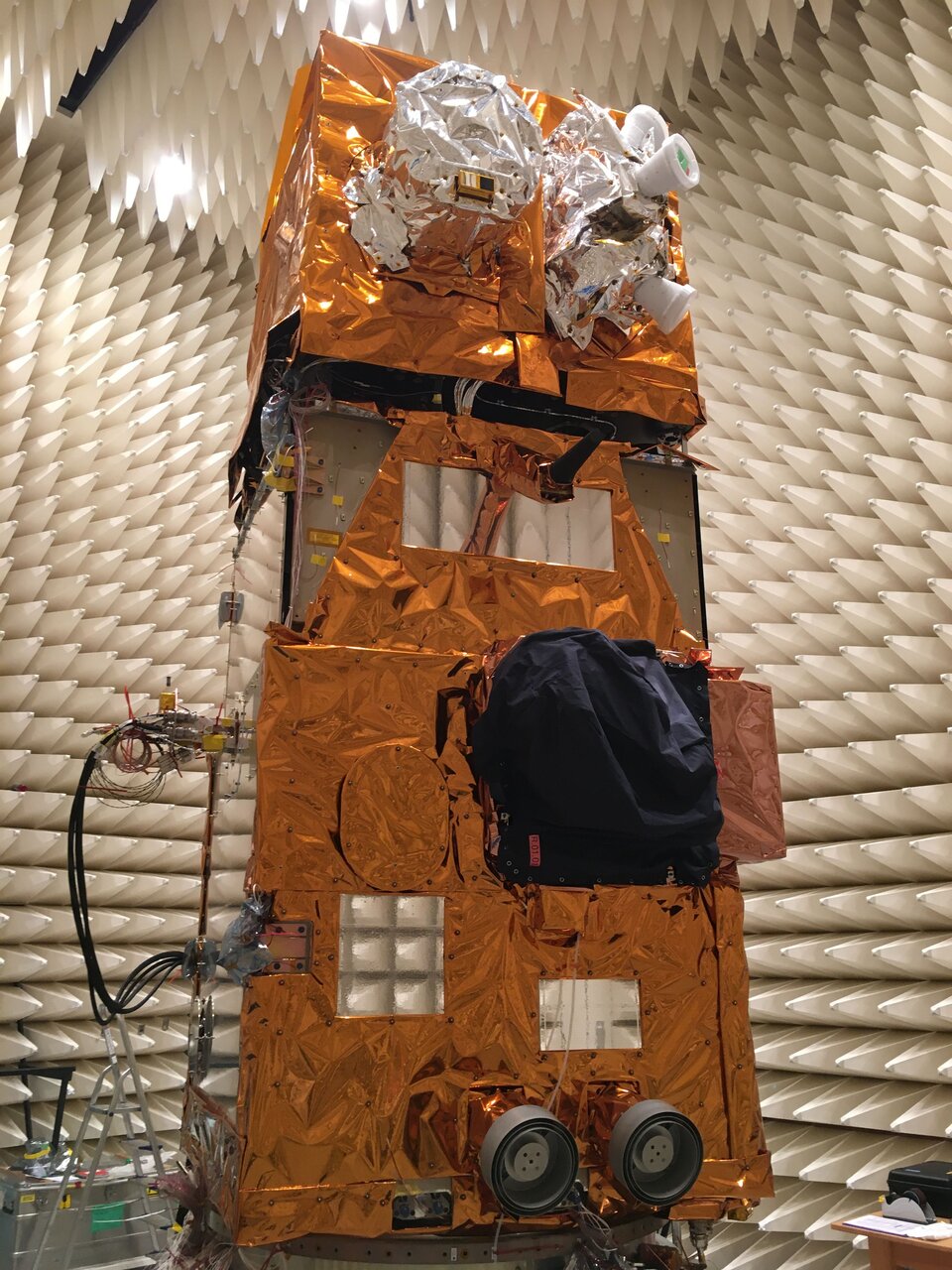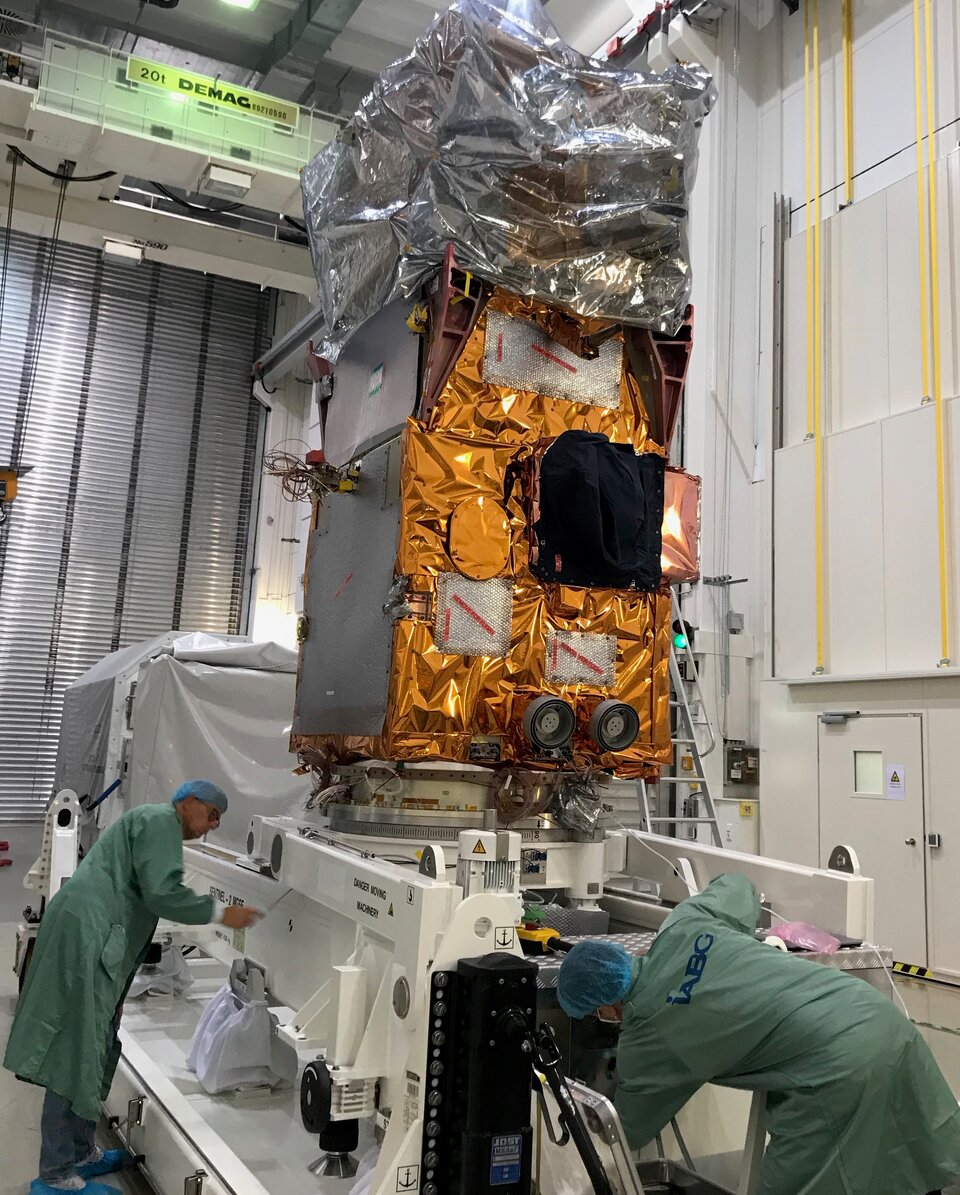10.08.2021

With the first Copernicus Sentinel-2 satellite in orbit since 2015 and the second since 2017, engineers are busy preparing the mission’s follow-on pair to eventually pick up the baton to supply images for a myriad of applications from food security to monitoring the decline of Earth’s ice. Slated for launch at the beginning of 2024, Sentinel-2C has just started a punishing five-month testing programme to ensure that it is fit for its life in space.
The Sentinel-2 satellites each carry an innovative high-resolution multispectral imager, which combined with their 290 km-wide swath and frequent revisit times, offer unprecedented views of Earth.

The mission provides information mainly for agricultural practices and for tackling the global issue of food security. Images can be used to determine leaf area chlorophyll and water content indexes, for example. These data are particularly important for effective yield prediction and applications related to Earth’s vegetation.
However, over the last six years, the mission’s data have also been used to monitor changes in ice sheets and glaciers, coastal erosion, deforestation, burnt land resulting from wildfires, pollution in lakes and coastal waters, and more.
The mission is based on a constellation of two identical satellites in the same orbit, 180° apart for optimal coverage and data delivery. So, when Sentinel-2A retires, Sentinel-2C will be there to take its place, and eventually Sentinel-2D will replace Sentinel-2B.
This pairing guarantees the continuation of data delivery that many Copernicus Services users now rely.
With such an important career ahead, it is essential that the next Sentinel-2 satellite to launch, Sentinel-2C, is thoroughly tested. Engineers at Airbus Defence and Space in Friedrichshafen, Germany, have spent the last four months completing the build-up of the satellite by integrating its all-important multispectral imager instrument, and have now transported it to IABG’s facilities in Ottobrunn. Given the restrictions that the Covid pandemic has imposed this has been no easy matter.
Constantin Mavrocordatos, ESA’s Copernicus Sentinel-2 project manager said, “We are thrilled that Sentinel-2C is now ready to be fully tested. Airbus has done a spectacular job fitting the whole satellite out, especially during these difficult Covid times, which has led to some different ways of working to ensure all the restrictions are respected.

“The satellite arrived safely in IABG where it was unpacked, checked that all is well after its short road trip from Friedrichshafen and was installed in the cleanroom for series of exhaustive tests that will run until Christmas.”
The programme includes a range of mechanical tests that simulate the noise and vibrations of liftoff, tests that check that the satellite deploys its solar wing correctly, other tests that place the satellite under the extreme temperature swings it will experience in space, and electromagnetic compatibility tests to measure radio frequency radiation levels generated by the satellite and to verify the correct operation of the satellite equipment under this environment.
Once all this has been completed, Sentinel-2C will be transported back to Friedrichshafen for some final checks before being placed in storage to wait until it is time to ship it to the launch site in French Guiana. Liftoff is envisaged to take place in early 2024.

